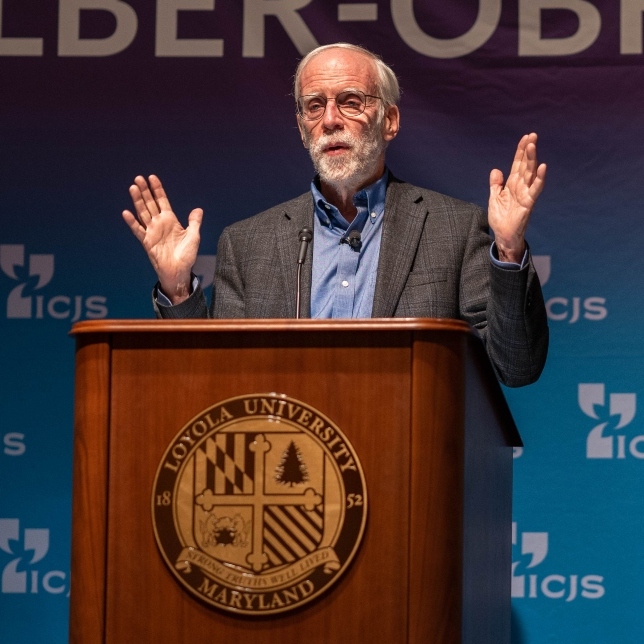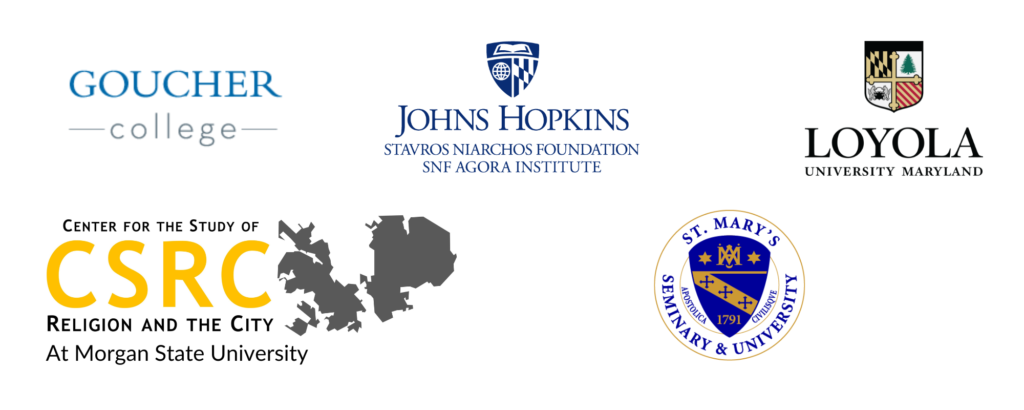The Silber-Obrecht Lecture

Advancing the Field of Interreligious and Interfaith Studies
The Silber-Obrecht Lecture, the first endowed lectureship in the emerging field of Interreligious and Interfaith Studies, is a three-day academic residency in Baltimore held every other year. The lectureship aims to advance the field of study by presenting new and creative work by a senior scholar and interreligious practitioner.
The inaugural Silber-Obrecht Lecture, held from April 25-27, 2023 at Loyola University Maryland, was delivered by Francis X. Clooney, S.J., a theologian at the Harvard Divinity School and a leader in the field of interreligious studies. Shubha Pathak, Ph.D., Ph.D., associate professor in the Department of Philosophy and Religion at American University in Washington D.C. offered her response to Dr. Clooney’s lecture.
The endowed lecture, managed and sponsored by ICJS, is held in partnership with five Baltimore educational institutions: Goucher College, the SNF Agora Institute at Johns Hopkins University, Loyola University Maryland, Morgan State University’s Center for Religion and Cities, and St. Mary’s Seminary & University.
The Silber-Obrecht Lecture is named in honor of Sidney and Jean Silber and Charles F. and Margaret M.H. (Peggy) Obrecht in recognition of their longtime commitment to improving interreligious relationships and understanding.
The second Silber-Obrecht Lecture and events will be in spring 2025.
Event Photos
Lecture 1
What is the state of the emerging field of interreligious and interfaith studies?
Harvard Divinity School professor and Jesuit priest Francis X. Clooney, S.J. reflects in this first lecture on the intersection of his own Catholic faith with his decades-long study of Hinduism.
Harvard Divinity School professor and Jesuit priest Francis X. Clooney, S.J. reflects in this first lecture on the intersection of his own Catholic faith with his decades-long study of Hinduism.
Lecture 2, Part 1
What is the future of the field?
In Lecture 2, Part 1, Francis X. Clooney, S.J. explores a particular expression of the divine as reflected in translations of 9th century Tamil Hindu poetry from the south of India.
In Lecture 2, Part 1, Francis X. Clooney, S.J. explores a particular expression of the divine as reflected in translations of 9th century Tamil Hindu poetry from the south of India.
Lecture 2, Part 2
Response by Shubha Pathak
In Part 2, Shubha Pathak Ph.D., Ph.D. offers her response to Fr. Clooney based on her interpretation of epic myths from Greece, India, and Rome.
In Part 2, Shubha Pathak Ph.D., Ph.D. offers her response to Fr. Clooney based on her interpretation of epic myths from Greece, India, and Rome.
